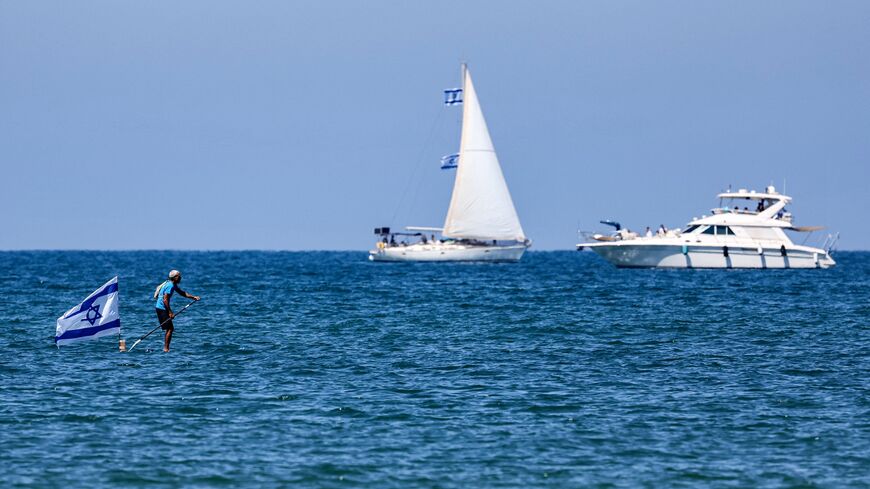PARIS — Israeli Energy Minister Israel Katz met in Paris with several European and OECD officials on Wednesday and Thursday in an effort to advance an undersea electric cable project to connect the Israeli grid with regional countries and Europe.
Since 2017, Israel has been promoting an undersea pipeline that would transport natural gas from Israel and Egypt to Cyprus and the south of Europe. The East Mediterranean Gas Forum is also working to promote this goal. And alongside regional cooperation on exporting natural gas, Israel is also advancing a new project aimed at guaranteeing Israel’s electricity independence, with the objective of exporting "green electricity" generated by solar field to countries in the region and to Europe.
The idea is to build an electric cable under the sea along the Israeli Mediterranean coast, from Ashkelon in the south to Israel’s northern border. Once a cable is installed, it could link to various points outside the country, allowing Israel to receive electricity from Egypt in case of extreme power shortages, for instance, or vice versa. It would also open the possibility of exporting Israeli electricity to Jordan, the Gulf countries, Cyprus and Europe.
While in Paris, Katz met with International Energy Agency Director Fatih Birol to advance Israel’s candidacy for membership and with European leaders such as EU Energy Commissioner Kadri Simons, officials at the French Energy Ministry and the chair of the French electricity company EDF Jean-Bernard Levy. The Israeli minister brought up his new cable initiative in his Paris meetings. He also toured the French connection point of the IFA2 subsea electrical interconnector, running beneath the English Channel between France and the United Kingdom.
The issues of energy security and independence have become especially acute in recent years for Israel as its population has grown rapidly. Two major blackouts darkened parts of the country at the end of April and beginning of May. Israeli authorities fear that such events could occur more frequently, especially in the summer months, when Israelis use air conditioning all day long. Egypt has been suffering from similar problems.
The undersea cable initiative was included in a government decision adopted May 28 on increasing the efficiency of electricity production and preventing discontinuities in electricity supply. The Energy Ministry is now preparing a national energy policy that may be published in July. The new plan will elaborate on the new project, among other things.
Last February, Katz participated in the EGYPS23 conference on regional energy cooperation and gas held in Cairo. Katz met in Cairo with Egyptian Minister of Petroleum and Mineral Resources Tarek El Molla and Egyptian Minister of Electricity and Renewable Energies Mohamed Shaker El Markabi, discussing the Israeli initiative.
Associates of Katz told Al-Monitor that discussions with Egypt on the initiative are more advanced than with other regional potential partners. Both countries are working to advance the project and establish a connection point at the Egyptian city of Al-Arish, in the north of the Sinai Peninsula on the shores on the Mediterranean Sea.
Israel is also pursuing the possibility of connections over land with Jordan and from there to Gulf countries, as well as links to Cyprus and from there to Europe, or directly from Israel to Italy. A delegation of the Cypriot Energy Ministry is set to travel to Israel next week to discuss energy cooperation, including the planned natural gas pipeline and the new electricity initiative. The Israeli minister also met in recent weeks with the Italian ambassador to Israel to discuss bilateral and regional energy cooperation.
Israel’s ambassador to multilateral organizations in France, Haim Assaraf, has been dedicating considerable efforts in the past two years to increasing Israel’s international energy cooperation. A senior source at the Israeli Energy Ministry told Al-Monitor that the two projects are linked because they will probably run along the same physical path. Both projects are part of the government’s ongoing efforts to make Israel a regional clean energy hub.
The source noted that for the moment, about 11% of Israel’s electricity is produced with solar energy. For the electricity cable project, Israel would need to increase its green electricity capacity by expanding or building more solar fields.







